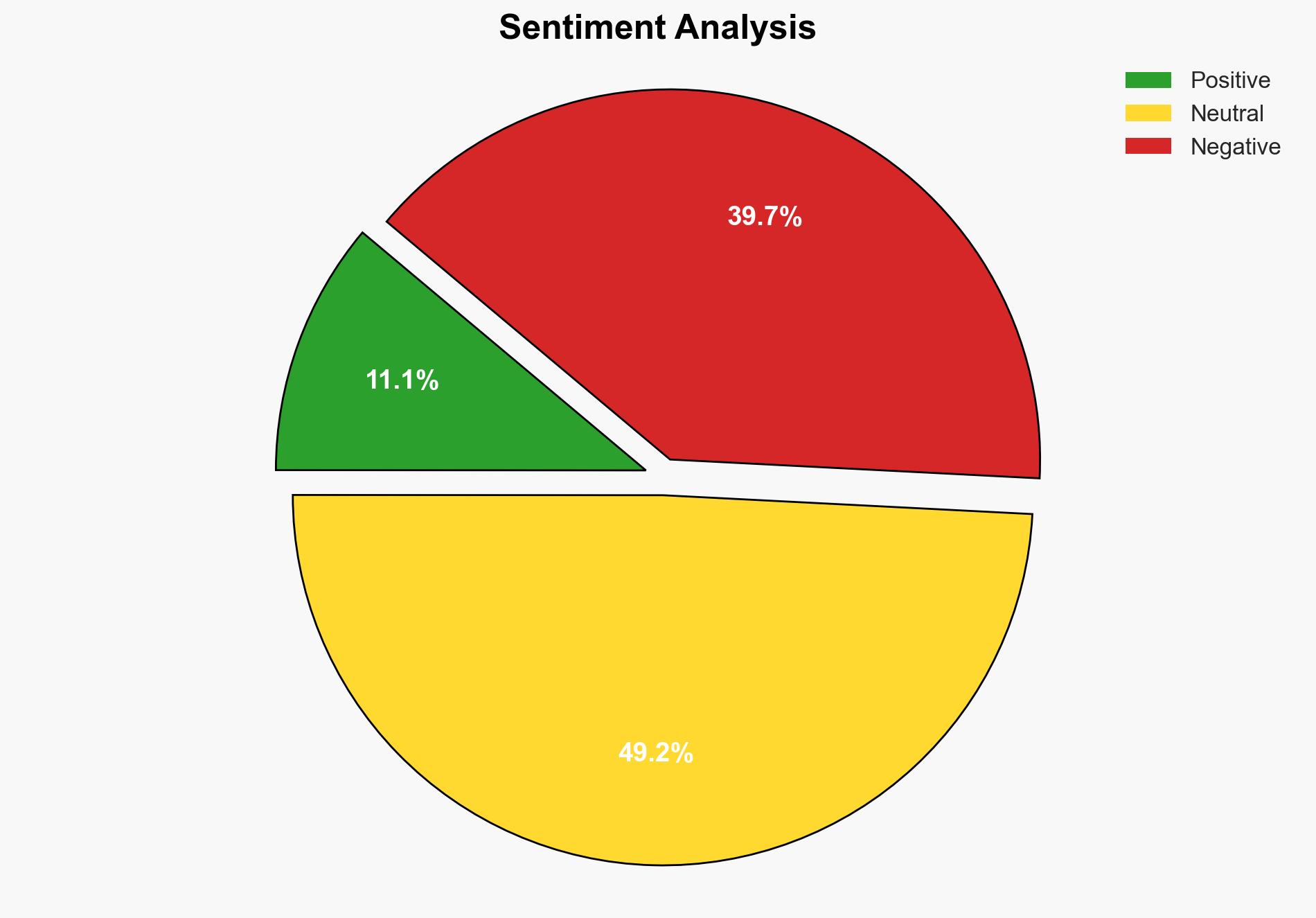Global terrorism The 10 hardest hit countries – The Times of India
Published on: 2025-03-07
Intelligence Report: Global Terrorism – The 10 Hardest Hit Countries
1. BLUF (Bottom Line Up Front)
The global terrorism landscape remains volatile, with significant impacts in regions such as the Sahel, Middle East, and South Asia. Key findings indicate a rise in terrorism-related deaths in countries like Pakistan, Niger, and Nigeria, driven by groups such as Tehrik-e-Taliban Pakistan and Boko Haram. Conversely, some regions, including Afghanistan and Israel, have seen a decline in incidents due to intensified security measures. Strategic recommendations focus on enhancing regional cooperation and counterterrorism strategies to mitigate these threats.
2. Detailed Analysis
The following structured analytic techniques have been applied for this analysis:
SWOT Analysis
Strengths: Enhanced security measures in Israel and Afghanistan have led to a reduction in terrorism-related incidents.
Weaknesses: Political instability and porous borders in the Sahel region exacerbate the threat of terrorism.
Opportunities: Increased international collaboration can bolster counterterrorism efforts.
Threats: Persistent extremist activities in regions like Syria and Somalia continue to pose significant security challenges.
Cross-Impact Matrix
Events in one region, such as increased attacks in Pakistan, have the potential to influence neighboring countries like Afghanistan, potentially destabilizing the broader South Asian region. Similarly, the rise in terrorism in Niger and Nigeria could impact the entire Sahel region, affecting regional stability.
Scenario Generation
Best-case scenario: Strengthened international cooperation leads to a significant decrease in terrorism incidents globally.
Worst-case scenario: Escalation of conflicts in key regions results in widespread instability and increased terrorism.
Most likely scenario: Continued localized conflicts with sporadic international interventions maintain current levels of terrorism.
3. Implications and Strategic Risks
The rise in terrorism-related activities poses significant risks to national security, regional stability, and economic interests. Countries like Pakistan and Nigeria face challenges in maintaining internal security, which could lead to broader regional instability. The persistent threat from groups such as Islamic State remnants in Syria and Al-Shabaab in Somalia underscores the need for sustained counterterrorism efforts.
4. Recommendations and Outlook
Recommendations:
- Enhance regional intelligence-sharing mechanisms to improve threat detection and response.
- Invest in community-based programs to counter radicalization and support deradicalization efforts.
- Strengthen border security and surveillance to prevent cross-border terrorism activities.
Outlook:
Best-case: Successful implementation of counterterrorism strategies leads to a decline in global terrorism incidents.
Worst-case: Continued political instability and lack of cooperation result in increased terrorism activities.
Most likely: Gradual improvements in some regions, with persistent challenges in others, maintain current threat levels.
5. Key Individuals and Entities
The report references significant groups and individuals involved in terrorism activities, such as Jama Nusrat al-Islam wal-Muslimeen, Tehrik-e-Taliban Pakistan, Boko Haram, and Al-Shabaab. These entities are central to understanding the current terrorism landscape and formulating effective countermeasures.





